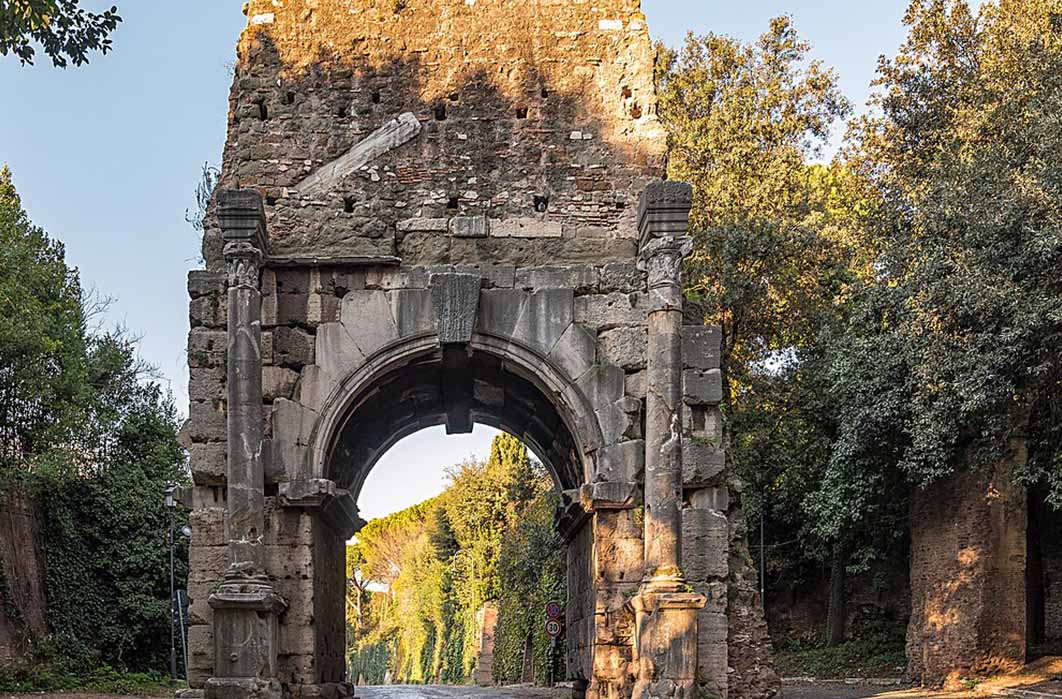
A Hero’s Send-Off To Rome’s General Drusus The Elder, First Germanicus
When word of his younger brother’s life-threatening illness reached him, Roman General Tiberius (later Emperor Tiberius Caesar Augustus) who was in Pavia at the time, crossed the Alps like a man possessed. Without stopping day or night, he covered 200 Roman miles in a dangerous country. When Tiberius finally arrived, his younger brother Nero Claudius Drusus, despite being on the verge of death, ordered his men to greet Tiberius with the dignity due to a consular and an imperator.
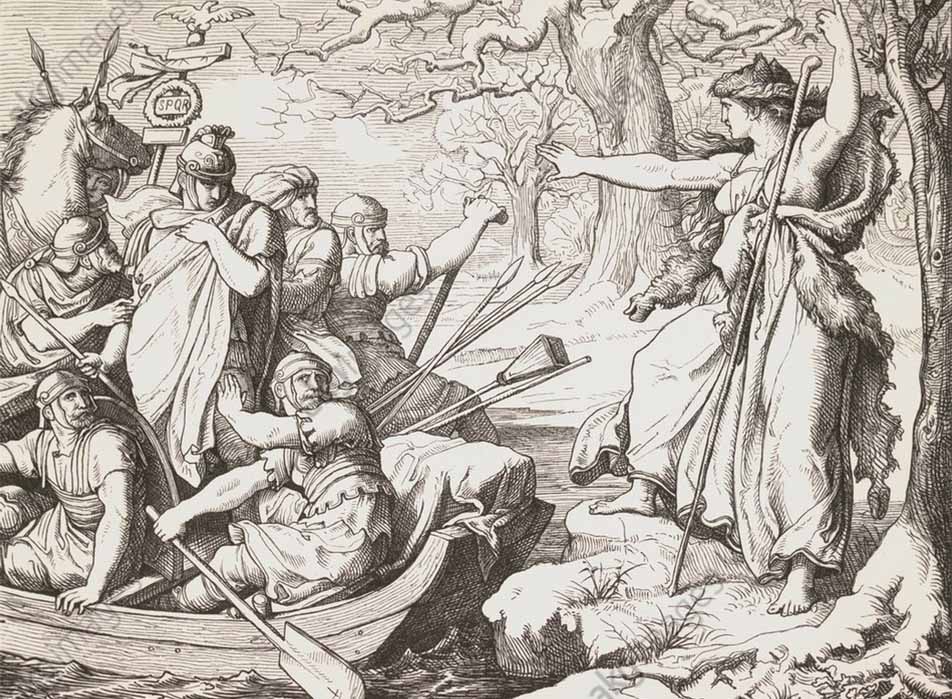
Drusus at the River Elbe by Eduard Bendemann (1860) Berlin, Sammlung Archiv für Kunst und Geschichte (AKG Collection)
Tiberius' frantic dash across the Rhine from north-western Italy to Germany to his brother's bedside evolved into a legend. The death of Drusus alone would have been worthy of a two-act epic. The tribute for Drusus the brother would have been a beautiful first act. Told first by Livy (now lost) and retold by others, this act consists of the dying Drusus' struggle to show his brother the honors befitting a victorious general, the final brotherly kiss and embrace between the two men, and finally the ritual closing of Drusus' eyes by Tiberius. Then there is the funeral of Drusus the hero, in the second act. As a mark of respect for Drusus, the German tribes stopped fighting, allowing Tiberius to walk ahead of the procession to bring Drusus' body all the way home to Rome. The young general's body was carried by his centurions and tribunes in the first stage, through enemy territory, from the summer camp to their winter quarters. The body was then carried by the leading men of each town and city that the procession passed through.
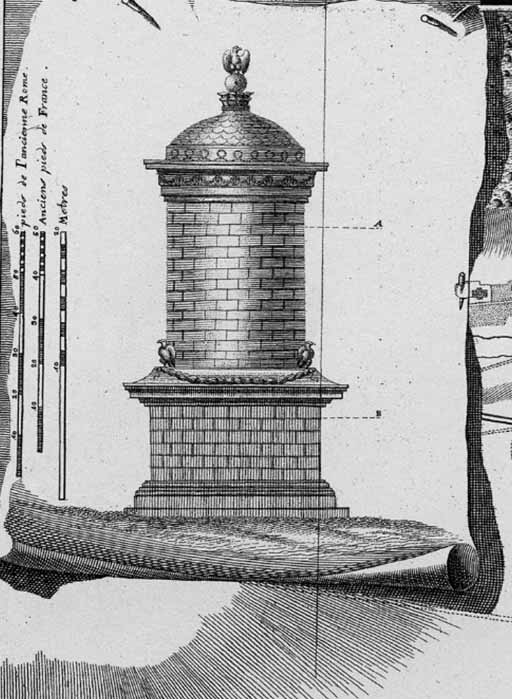
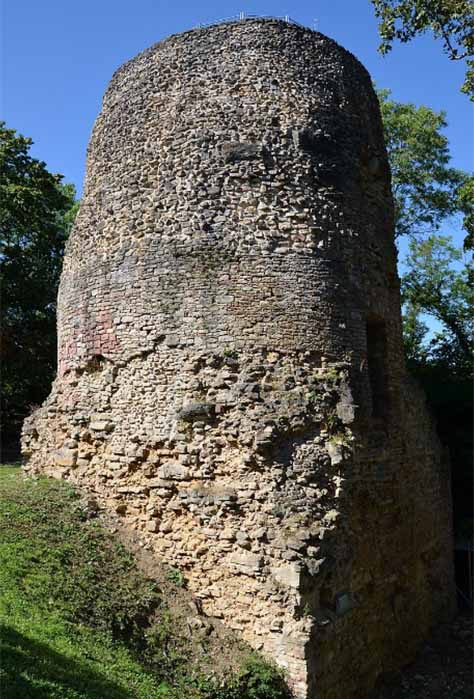
The Drususstein, the funerary monument in Mogontiacum (Mainz) erected by legionaries in Drusus' honor. Left, a reconstruction of its original appearance; right, its current appearance (CC BY-SA 3.0)
The Burial of a Great Hero of Rome: Germanicus
When the funeral procession arrived in Pavia, they were joined by the Emperor Augustus himself and his wife Livia (the mother of Tiberius and Drusus) as they continued their journey to Rome. The order of the scribes, the highest in rank of the four prestigious decuriae (“occupational grades”) among the civil servants, received Drusus' body in Rome and carried it to the Forum, where Tiberius proceeded to deliver the eulogy. The body was then transported to the Circus Flaminius where Augustus delivered a second eulogy. Drusus' body was then carried to the Campus Martius and burned at the Ustrinum. His ashes were then interred in the Mausoleum, and he was lavished with tributes such as statues, an arch and a cenotaph on the Rhine. But perhaps the most significant honor bestowed upon him is the title "Germanicus," which denotes him as the conqueror of Germany.
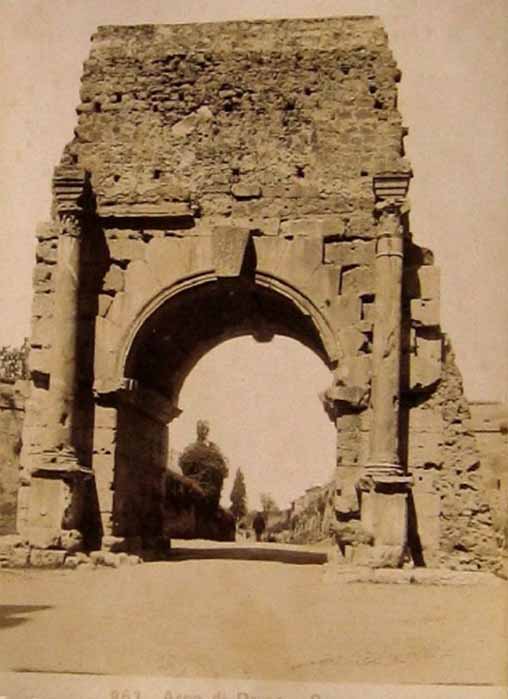
"Arch of Drusus – Rome photograph by Romualdo Moscioni (1849-1925) (Public Domain)
Drusus' posthumous fame as Drusus Germanicus was immense and long-lasting. His family became the keepers of this fame. For decades, his young widow was identified in literature, inscriptions and papyri as Antonia Drusi. Antonia outlived Drusus by nearly 45 years and never remarried. Drusus’ two young sons were also to be given the name ‘Germanicus’. His elder son (born in 15 BC) became known as Germanicus Julius Caesar after his adoption by his uncle Tiberius in 4 AD, and proceeded to become the Roman people’s hero until his own death, much like his father.




